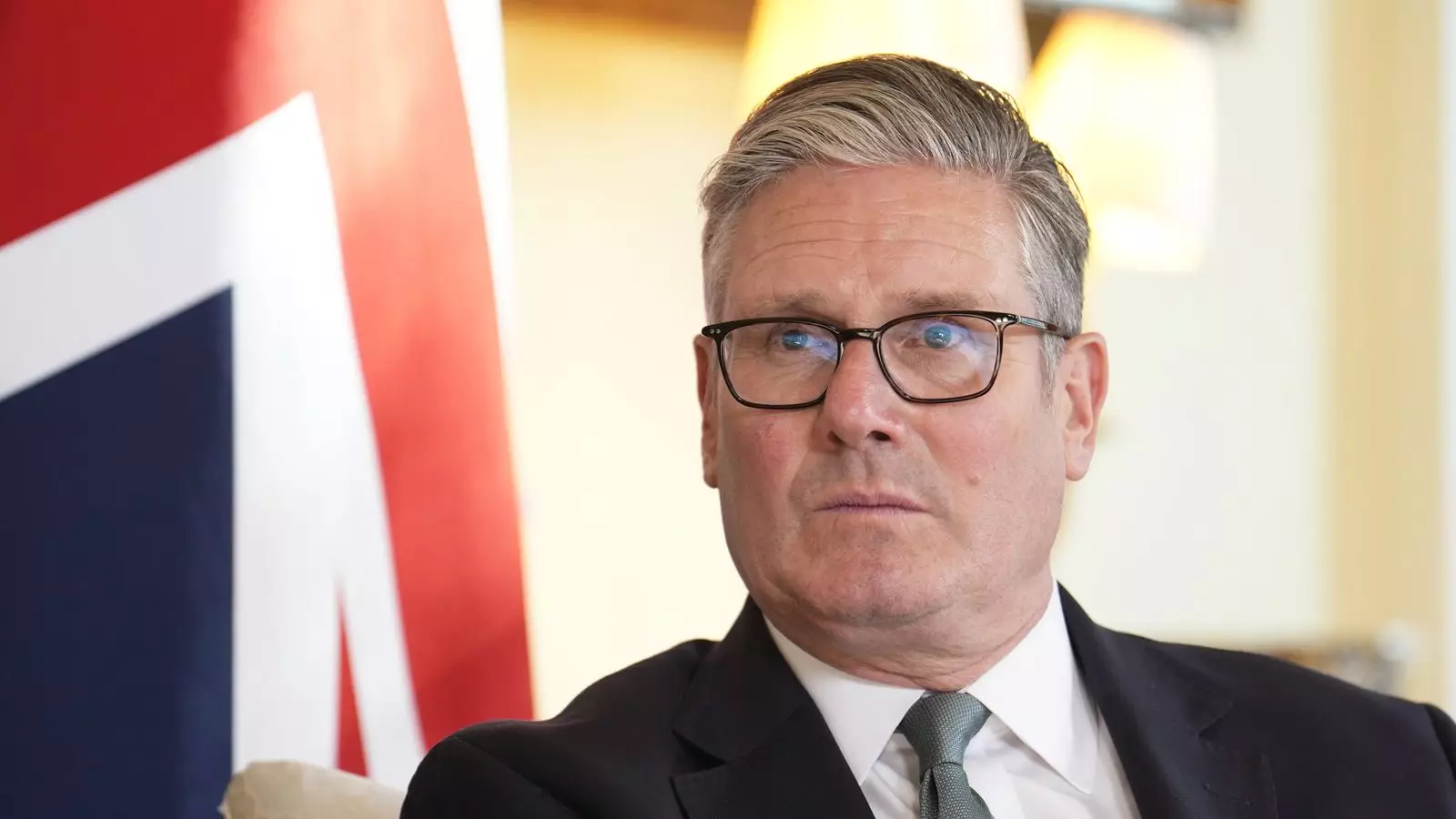The recent military strikes by the United States on Iranian nuclear facilities have sent shockwaves through the Middle East, demonstrating that the region’s instability remains an unresolved issue that could spiral out of control. Prime Minister Sir Keir Starmer’s assertion that stability is a priority highlights the urgent need for diplomatic engagement. Yet, the question remains: can such efforts truly mitigate the risks posed by Iran’s nuclear ambitions? The answer, unfortunately, is clouded by the complexity of regional geopolitics and the fragmented landscape of international relations.
When nations like the U.S. unilaterally decide to deploy military might, the resulting power dynamics often lead not to resolution but to chaos. In his statements, Starmer emphasized that Iran’s nuclear program poses a “grave threat to international security,” which is undeniably true. However, framing this threat solely as a ticking time bomb distracts from the larger conversation about accountability, regional rights, and the historical grievances driving Iran’s actions. By demanding Iran return to the negotiating table without acknowledging the roots of the conflict, we risk producing agreements as fragile as the peace they aim to establish.
Diplomacy vs. Militarism
Starmer’s call for Iran to “return to the negotiation table” is commendable, yet the backdrop of military assault casts a long shadow over any such overture. Diplomatic negotiations require a foundation of trust, and trust is a commodity in short supply in a landscape marred by violence. The ongoing narrative from U.S. leaders, particularly the endorsement of Donald Trump praising their own military strikes, further complicates the diplomatic message. Trump exulted in the obliteration of nuclear sites, positioning it as a historic act that safeguarded global security. This triumphalism not only dismisses the lives affected by such decisions but also ignores the potential for retaliation from Iran.
Iran’s immediate response, characterized by vehement warnings of “everlasting consequences,” rings alarm bells across the international arena. When a state feels cornered, particularly by a military powerhouse, its responsiveness often manifests in unpredictable ways—potentially igniting a broader conflict. The Iranian leadership’s rhetoric serves to rally national sentiment and assert sovereignty, but it also exposes the danger of escalation as a defense mechanism in the face of external aggression.
The Global Community’s Role
The United Nations was quick to register its dismay over the U.S. actions, with Secretary-General Antonio Guterres highlighting the risks associated with such military interventions. His warning serves as an essential reminder that the ramifications extend beyond the immediate region. International peace and stability hinge on collaborative solutions rather than aggressive posturing. It’s vital that global actors, not merely regional players, step up and influence the trajectory of this conflict. If the U.N. and Western powers are only perceived as enablers of aggressive posturing, the likelihood of achieving a peaceful resolution dims significantly.
Moreover, it’s crucial for the global community to critically examine its role in these dynamics. Historical complicity—from military support to economic sanctions—has often left nations like Iran feeling besieged. The popular narrative of Iran as the sole aggressor risks ignoring how decades of interventionist policies have contributed to the current landscape. Real diplomatic solutions will require a nuanced understanding that includes listening to the grievances of all parties involved.
The Role of Public Discourse
As citizens, our understanding of these geopolitics matters. The discourse surrounding issues like the U.S. strikes on Iran often simplifies complex realities into black-and-white moral tales. The ethical implications of military intervention versus diplomatic negotiations should dominate public conversations. It’s not merely about labeling actions as good or bad; it’s about recognizing the stakes involved and advocating for solutions that prioritize peace over conflict.
In this respect, voices advocating for diplomacy and negotiation must rise above the din of war drums. Political leaders, like Starmer and his counterparts, must engage in a broader dialogue, not only to inform public opinion but also to create pathways toward genuine resolution. The fixation on military solutions backfires, perpetuating cycles of violence that have plagued the region for far too long.
The stakes are high, and the risks of escalation are real; it is time to shift from reactive measures to proactive, compassionate diplomacy that seeks to de-escalate rather than provoke further conflict.


Leave a Reply